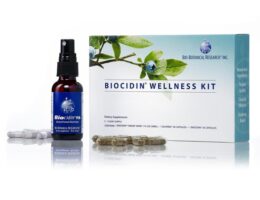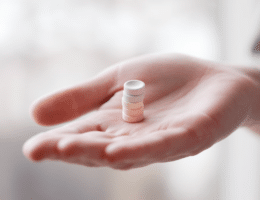The celiac disease diet is a specialized eating plan designed to avoid gluten, a protein that triggers an immune response in those with the condition. This disorder affects the lining of the small intestine, causing symptoms like abdominal pain, bloating, and diarrhea.
Adhering to a gluten-free diet is the only treatment for celiac disease, and it requires careful planning to ensure adequate nutrition. Individuals with the illness may also need to consider adding supplements to their regimens to address deficiencies and better support their health.
Join us today as we discover the dos and don’ts of the celiac disease diet, along with the supplements that can be helpful for those with the condition.
Basics of the Celiac Disease Diet
The celiac disease diet eliminates any food or drinks containing gluten, which is found in wheat, barley, and rye. Eating even the tiniest amount of the protein may trigger an immune system reaction that damages the villi (small, finger-like projections that line the small intestine) [1].
Over time, this destruction can lead to malabsorption of nutrients and cause a range of discomfort that includes [2]:
- Pain
- Bloating
- Fatigue
- Diarrhea
- Anemia
By following a strict, gluten-free diet, people with celiac disease can prevent further damage to their small intestine, allowing the villi to heal. The eating plan can also improve food absorption and relieve many of the symptoms associated with the disorder.
One diet to consider if you’re living with celiac disease is a low FODMAP diet—and having a FODMATE is the perfect way of incorporating it.
You can learn more in the below video:
In certain cases, whether FOTMATE or another diet, health strengthens within days or weeks of starting the diet regimen—although it could take several months or even years to heal the intestine fully [3].
However, it’s often challenging to stick to the celiac disease diet, as gluten is a common ingredient in many foods.
So below, we’ve provided some simple dos and don’ts that can help you ensure your meals are safe, nutritious, and enjoyable.
The Dos
Here are the important “dos” of the celiac disease diet that help you prevent long-term complications and stay healthy.
Do Emphasize Whole Foods

(Image source: Unsplash)
Emphasizing whole foods is one of the most important aspects of the celiac disease diet. These include foods in their natural state or those that are minimally processed, such as fruits, vegetables, whole grains, nuts, seeds, and lean protein.
Top tip: Along with following a healthy eating plan, one of the best ways to manage your celiac disease is to support your gut with digestive supplements.
Whole foods are rich in vitamins, minerals, fiber, and other nutrients that are essential for maintaining good health. They’re also naturally gluten-free, making them a safe choice for individuals living with celiac disease.
Eating whole foods can help alleviate some of the symptoms associated with the disorder [4].
Focusing on fresh produce and whole grains helps you avoid these potentially harmful ingredients and enjoy dishes that are easy for your body to break down.
When it comes to incorporating these foods into your diet, variety is key. Aim to eat a range of fruits and vegetables along with grains like quinoa, brown rice, and amaranth. Lean proteins like chicken, fish, and tofu can also provide essential amino acids that support tissue repair.
Do Read Food Labels
It’s crucial to read labels to avoid consuming any hidden gluten. The compound could be present in many processed foods, even those that aren’t traditionally associated with wheat, barley, or rye. This includes soups, sauces, and salad dressings.
In addition, many processed snacks, including those labeled “gluten-free,” contain additives and preservatives that may irritate the digestive system.
According to the US Food and Drug Administration (FDA), gluten-free products must contain fewer than 20 parts per million of the protein. However, some companies use their own standards, which may be less-strict than the FDA’s guidelines.
This warrants the reading of food labels carefully to ensure items don’t contain ingredients known to have gluten. In addition, pay attention to serving sizes, as some products contain small amounts of the compound that may add up if consumed in large quantities.
Do Stay Mindful of Cross-Contamination
Cross-contamination occurs when gluten-containing foods come into contact with gluten-free foods, utensils, or surfaces. As tiny amounts of the protein can trigger an immune response in individuals with celiac disease, it’s essential to be mindful that this scenario can happen.
To reduce the risks of cross-contamination, keep separate kitchen utensils, cookware, and cutting boards for preparing meals that don’t contain gluten. Also, avoid sharing toasters or air fryers, as these appliances can harbor gluten residue that may contaminate your food.
Store your food separately from meals containing gluten and make sure others in your household are aware of your conditions and the importance of avoiding contamination.
Do Take Recommended Supplements
Supplements are a valuable addition to the celiac disease diet, as they provide important nutrients that may be lacking because of food restrictions. Choose your products carefully, ensuring they are gluten-free and third-party tested for purity.
These are the supplements we recommend for celiac disease:
- Probiotics: Beneficial bacteria support digestive processes and help maintain a healthy gut microbiome. These effects are especially important for individuals with celiac disease who experience gut dysbiosis — an imbalance in the microorganisms of the gastrointestinal tract.
- Digestive enzymes: They can help break down proteins, carbohydrates, and fats in food, making it easier for the body to absorb essential nutrients. Digestive enzymes could also alleviate bloating, gas, and abdominal discomfort.
UltraGI Replenish is a specially formulated powder containing a blend of minerals, amino acids, and digestive enzymes. It aids in breaking down complex dietary components to help people with sensitive digestive systems improve their gut health.


- B vitamins: Celiac disease can impair nutrient absorption, including that of vitamin B, which plays a critical role in several bodily functions. Supplementing your diet with this mineral could help address potential deficiencies.
- Immunoglobulins: These products contain purified immunoglobulin G antibodies that can bind to harmful substances, including certain food allergens, in the stomach before they pass into the bloodstream. This interaction helps reduce the likelihood of an immune response that may exacerbate celiac disease symptoms.
Mega IgG2000 is an excellent option, containing a blend of bovine-derived antibodies that support immune system function and gut barrier integrity.
Suzanne B. found the supplement effective at improving her digestion:

The Don’ts
While there are many foods beneficial for people with celiac disease, it’s important to be aware of those that you should avoid.
Following the celiac disease diet is much more than simply eating gluten-free meals. It also means being mindful of other lifestyle factors that can impact your health.
Let’s get into some of the “don’ts” of living with celiac disease — the foods, substances, and behaviors that might trigger symptoms and make it more difficult to manage your illness.
Don’t Eat Foods That May Irritate Your Digestive System
Along with avoiding gluten, keep in mind that other foods may also irritate your digestive system. They might cause inflammation, bloating, and discomfort, all of which exacerbate the symptoms of celiac disease.
These are some common meals and beverages to avoid:
| Food or Beverage | Why Avoid It? |
Processed or fried foods | High levels of salt and fat can be difficult to digest and may inflame the digestive tract. Preservatives and flavorings may also cause irritation. |
| Spicy foods | Capsaicin, the compound that gives spicy foods heat, can irritate and inflame the gut. |
| Caffeine | Increases stomach acid, causing irritation. |
| Alcohol | A known irritant to the digestive tract. Can damage the intestinal lining. |
| High-fat foods | Slow digestion and can cause gas and bloating. |
| Beans and legumes | High in fiber, which is difficult to digest. |
| Cruciferous vegetables | High in fiber and complex carbohydrates, which may cause gas and bloating. |
Important note: These foods and beverages might not affect everyone with celiac disease in the same way, and some individuals can tolerate them in moderation. However, be aware of these potential irritants and limit them should you notice any negative effects on your health.
Don’t Assume Medications and Supplements are Gluten-Free
Many medications and supplements use gluten as a binding agent or filler. The protein, most commonly wheat, barley, or rye, holds the drug together or makes it easier to swallow.
Prescription medications and supplements list their ingredients on their labels. However, over-the-counter options may not be required to do so. This makes it crucial to research the products and consult with a healthcare professional before taking them.
Don’t Neglect to Communicate Your Dietary Needs

One of the most important parts of managing celiac disease is to communicate your dietary needs to those around you. Be clear and specific about your meal requirements to anyone involved in preparing or serving your food.
If you’re attending a social gathering or event, it might be a good idea to bring your own snacks that you know are safe to eat. You could also inform the host about your condition so they can make accommodations or provide gluten-free options.
Stay Gluten-Free and Happy
A strict, gluten-free diet is essential for individuals with celiac disease to prevent further damage to their small intestines and ease symptoms. By following our dos and don’ts, it’s possible to manage the condition successfully and maintain your overall health.
If you’re interested in learning more about your well-being, be sure to read our other blogs for informative articles and tips. With the right approach and support, it’s possible to stay gluten-free and happy.
Resources
[1] https://pubmed.ncbi.nlm.nih.gov/18315587/
[2] https://www.ncbi.nlm.nih.gov/pmc/articles/PMC3496881/
[3] https://pubmed.ncbi.nlm.nih.gov/12219789/
[4] https://www.ncbi.nlm.nih.gov/pmc/articles/PMC3257612/
NOTHING IN THIS WEBSITE IS INTENDED AS, OR SHOULD BE CONSTRUED AS, MEDICAL ADVICE. ANY HEALTHCARE AND/OR NUTRITIONAL MATERIAL CONTAINED IN THIS WEBSITE IS FOR CONSUMER INFORMATIONAL AND EDUCATIONAL PURPOSES ONLY. SUCH MATERIAL IS NOT INTENDED AS MEDICAL ADVICE FOR CONDITIONS OR TREATMENT, NOR IS IT INTENDED AS A SUBSTITUTE FOR A MEDICAL EXAMINATION BY A HEALTHCARE PROFESSIONAL. CONSUMERS SHOULD CONSULT THEIR OWN HEALTH CARE PROFESSIONALS FOR INDIVIDUAL MEDICAL RECOMMENDATIONS.
- Magnesium Threonate: An Honest Buying Guide for Health Enthusiasts - March 21, 2024
- Magnesium Citrate Vs Glycinate: 5 Key Differences And Benefits - March 14, 2024
- How to Pick the Best Magnesium Glycinate Supplement for You - March 7, 2024




